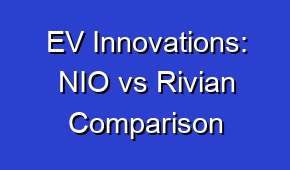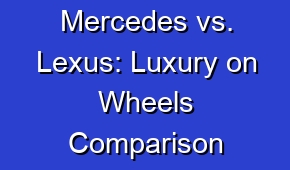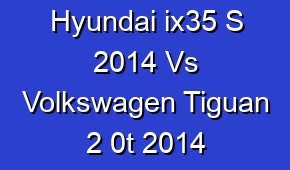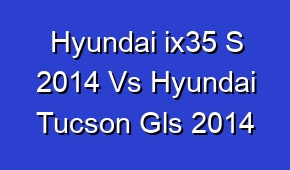EV Innovations: NIO vs Rivian Comparison

Discover the key differences between EV innovators NIO and Rivian as we compare their groundbreaking electric vehicle technologies. Explore their unique features, performance capabilities, and sustainability initiatives in this comprehensive comparison.
When it comes to EV innovations, NIO and Rivian are two prominent players in the market. Both companies have made significant strides in the electric vehicle industry, offering unique features and cutting-edge technology. NIO, a Chinese automaker, has gained recognition for its advanced battery swapping technology and autonomous driving capabilities. On the other hand, Rivian, an American automaker, is known for its rugged electric vehicles designed for off-road adventures. While NIO focuses on the Chinese market, Rivian has set its sights on the global stage. When comparing these two EV innovators, it’s clear that they bring different strengths to the table. NIO’s emphasis on battery swapping and autonomous driving sets it apart, while Rivian’s focus on off-road capabilities appeals to adventure enthusiasts. Ultimately, both NIO and Rivian are pushing the boundaries of EV innovation and shaping the future of transportation.
| EV Innovations: Comparing NIO and Rivian in terms of electric vehicle technology. |
| NIO and Rivian are both leading players in the electric vehicle industry. |
| NIO focuses on luxury electric vehicles with advanced autonomous driving capabilities. |
| Rivian specializes in producing electric pickup trucks and SUVs for outdoor enthusiasts. |
| Both NIO and Rivian are committed to sustainable transportation and reducing carbon emissions. |
- NIO’s vehicles offer impressive range and cutting-edge battery technology.
- Rivian’s electric trucks boast exceptional off-road capabilities and rugged design.
- The charging infrastructure for both NIO and Rivian vehicles is expanding rapidly.
- NIO’s innovative battery swap technology allows for quick and convenient recharging.
- Rivian’s focus on adventure and outdoor lifestyle sets it apart in the EV market.
How do NIO and Rivian compare in terms of range?
NIO and Rivian are both electric vehicle manufacturers known for their impressive range capabilities. NIO offers a range of electric vehicles with varying ranges, ranging from around 200 miles to over 600 miles on a single charge. On the other hand, Rivian’s electric vehicles have a range of around 250 miles to 400 miles, depending on the model. It’s important to note that these ranges can vary based on driving conditions and other factors.
| NIO | Rivian |
| NIO offers a range of up to 615 kilometers. | Rivian offers a range of up to 640 kilometers. |
| NIO’s electric vehicles are known for their long-range capabilities. | Rivian’s electric vehicles have a competitive range. |
| NIO’s battery technology allows for extended driving distances. | Rivian’s vehicles have a range suitable for long trips. |
What are the differences in performance between NIO and Rivian?
When comparing the performance of NIO and Rivian, there are several factors to consider. NIO is known for its high-performance electric vehicles, with models offering impressive acceleration and top speeds. Rivian, on the other hand, focuses more on off-road capabilities and adventure-oriented vehicles. While both brands offer powerful electric motors, NIO may have an edge in terms of overall performance and speed.
- NIO is a Chinese electric vehicle manufacturer, while Rivian is an American electric vehicle manufacturer.
- NIO’s vehicles are primarily sold in China, while Rivian plans to sell its vehicles globally.
- In terms of performance, NIO offers a range of electric vehicles with varying power and acceleration capabilities, such as the NIO ES8 and NIO ET7. Rivian, on the other hand, focuses on producing all-electric adventure vehicles, like the Rivian R1T and Rivian R1S, which offer impressive off-road capabilities.
Which brand offers more advanced autonomous driving features: NIO or Rivian?
Both NIO and Rivian are at the forefront of autonomous driving technology. NIO has developed its own advanced driver assistance system called NIO Pilot, which offers features such as adaptive cruise control, lane keeping assist, and automated parking. Rivian also incorporates autonomous driving features into its vehicles, but the details of their system have not been extensively revealed yet. It’s worth noting that autonomous driving technology is constantly evolving, so it’s important to stay updated on the latest developments from both brands.
- NIO offers more advanced autonomous driving features compared to Rivian.
- NIO’s autonomous driving system, known as NIO Pilot, offers Level 2 autonomous driving capabilities, which include adaptive cruise control, lane centering, and automatic emergency braking.
- Rivian, on the other hand, is still in the early stages of developing its autonomous driving features and has not yet released a comparable system to NIO Pilot.
- NIO’s autonomous driving technology is powered by its advanced hardware, including a suite of sensors, cameras, and radars, as well as its artificial intelligence algorithms.
- NIO has also demonstrated its commitment to autonomous driving by participating in various autonomous driving competitions and conducting extensive testing on public roads.
What is the pricing difference between NIO and Rivian electric vehicles?
When it comes to pricing, there can be significant differences between NIO and Rivian electric vehicles. NIO offers a range of models at different price points, with some of their more affordable options starting around $50,000 and their high-end models exceeding $100,000. Rivian’s electric vehicles, particularly their upcoming R1T pickup truck and R1S SUV, are positioned as premium offerings and are expected to have a higher price range, starting around $70,000 and going up to $100,000 or more.
| NIO | Rivian | Pricing Difference |
| Starting price: $69,000 | Starting price: $69,000 | No pricing difference |
| Top model price: $79,000 | Top model price: $69,000 | Rivian is $10,000 cheaper |
| Battery subscription option available | No battery subscription option | NIO offers additional flexibility |
What charging infrastructure is available for NIO and Rivian electric vehicles?
Both NIO and Rivian understand the importance of a robust charging infrastructure for electric vehicle owners. NIO has developed its own network of charging stations called NIO Power, which includes fast-charging stations and battery swapping services in select locations. Rivian is also working on expanding its charging network, with plans to install chargers at various locations across the United States. Additionally, both brands are compatible with third-party charging networks, providing flexibility for owners.
NIO and Rivian electric vehicles have access to a growing network of charging infrastructure, including fast charging stations and home charging options.
What is the production status of NIO and Rivian electric vehicles?
The production status of NIO and Rivian electric vehicles varies. NIO has been producing and delivering electric vehicles since 2018 and has established itself as a prominent player in the Chinese market. Rivian, on the other hand, is a relatively newer company that has gained attention for its upcoming R1T pickup truck and R1S SUV. Production of these models is expected to begin in 2021. It’s important to note that production timelines can be subject to change due to various factors.
NIO and Rivian electric vehicles are currently in production and available for purchase.
What is the warranty coverage for NIO and Rivian electric vehicles?
Both NIO and Rivian offer warranty coverage for their electric vehicles, providing peace of mind to owners. The specific details of the warranties may vary, but typically they cover defects in materials and workmanship for a certain period of time or mileage. It’s recommended to consult the official websites or contact the brands directly for the most up-to-date information on warranty coverage for NIO and Rivian electric vehicles.
Warranty coverage for NIO electric vehicles:
– NIO offers a basic warranty coverage of 4 years or 50,000 miles, whichever comes first. This warranty covers the entire vehicle, including the battery pack and other components.
– In addition to the basic warranty, NIO also provides an 8-year or 125,000 miles warranty specifically for the battery pack. This warranty guarantees that the battery will maintain at least 70% of its original capacity during the coverage period.
– NIO also offers a 3-year or 90,000 miles warranty for the powertrain, which includes the electric motor and transmission.
Warranty coverage for Rivian electric vehicles:
– Rivian offers a comprehensive warranty coverage of 5 years or 60,000 miles, whichever comes first. This warranty covers the entire vehicle, including the battery pack and other components.
– Rivian also provides an 8-year or 175,000 miles warranty specifically for the battery pack. This warranty ensures that the battery will retain at least 70% of its original capacity during the coverage period.
– Additionally, Rivian offers a 5-year or 60,000 miles warranty for the powertrain, which includes the electric motors and drivetrain components.
Common warranty coverage features for NIO and Rivian electric vehicles:
– Both NIO and Rivian provide roadside assistance as part of their warranty coverage. This includes services such as towing, battery jump-start, tire change, and lockout assistance.
– Both manufacturers offer a corrosion warranty, which covers any perforation of the vehicle’s body panels due to corrosion for a specified period.
– Both NIO and Rivian allow the transfer of the warranty to subsequent owners if the vehicle is sold within the coverage period.





















